Sustainability in coffee buying
A chat with Osito Coffee
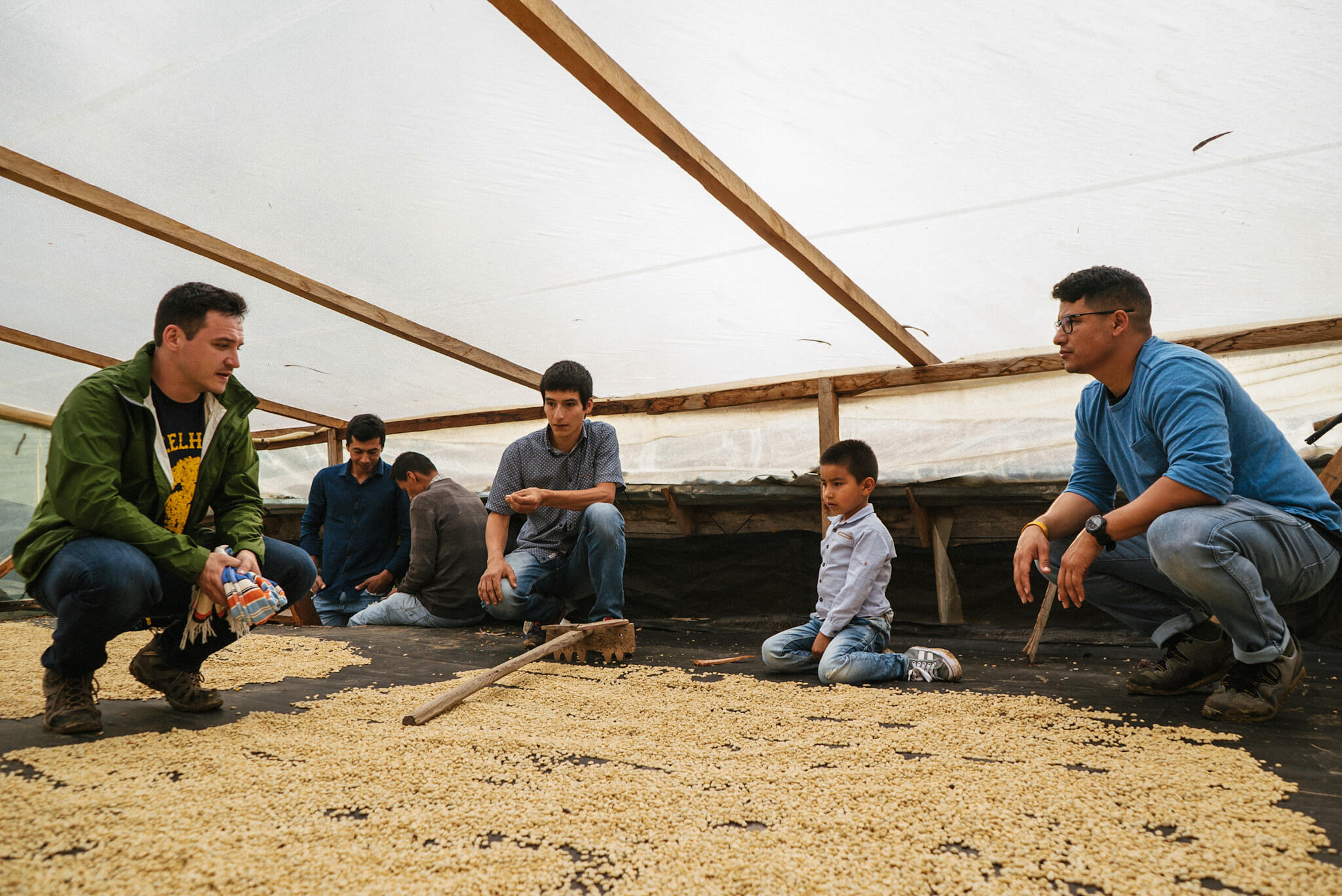
There is a lot of talk in our industry about the sustainability of coffee supply chains. You’ve probably heard one roastery or another describe their relationships with coffee producers as direct or transparent, but often what these words are used to describe can vary greatly depending on who you ask.
So what are we really talking about when it comes to buying coffee sustainably, and how can we as an industry do better? We got in touch with one of the most knowledgeable coffee buyers we know, Kyle Bellinger of Osito Coffee, to find out more.
Can you tell us a little about Osito and the mission you are on?
Osito was founded in early 2018 by Jose Jadir Losada and myself, Kyle Bellinger. We wanted to facilitate relationships between coffee farmers and roasters. What that meant for us was establishing an exporting firm in Colombia and an importing company based in the US. Our goal is rather simple; to change the way green coffee has traditionally been bought and sold and shift the focus to building and maintaining longstanding relationships.
What are ‘direct relationships’ in coffee buying and why are they important?
Unfortunately, the term “Direct” has become somewhat abused. The notion behind it is something admirable but given that it is not regulated, some small roasters can take a screenshot of a farmer off their importer’s Instagram account, buy their coffee and call it “Direct Trade.” On the flip side of that, I have approached many roasters who have said they can’t work with us because they buy “direct.” Ok, so yes, they have a relationship with a farmer but in almost all cases, you still need an exporter and an importer (of which, we are both) to help facilitate relationships.
Moreover, in almost every one of these scenarios, it’s a small roaster who has a relationship with a wealthy, hyper-connected farmer who has access to the luxuries of the modern world (internet, cell phone, etc) and is usually only selling them minuscule quantities of fancy “toy” coffee. Sadly, this is not the case for many small farmers and when roasters give me that boilerplate answer, it indicates to me that they don’t understand the real needs of the industry and that they are intentionally passing up opportunities to work with people who are in desperate need of a relationship. It’s a lot more catchy for a small roasting company to say they work with “Fancy Coffee Estate X” and their “Triple Cold-Fermented Green Tip Gesha” as opposed to “Farmer Association Y” who produces the vast majority of the 84/85 point Castillo and Var. Colombia that the same roaster gobbles up en masse and for which they want to pay as little as possible. This is obviously anecdotal and a generalisation but I think it’s important for roasters to consider the quality of the relationship they are referring to as “direct.”
Lastly, I’ll say that as a farm owner myself, I greatly appreciate clients who are committed to buy even though we have never met face to face and even though they have never visited the farm. It’s the commitment that is the key element. It doesn’t matter to me if someone buys our coffee once, visits our farm and takes a selfie so they can call it “direct.’ So I guess what I am getting at is that “direct” doesn’t matter as much as the real commitment behind why people feel the need to go “direct.”
What is ‘fixed pricing’ and why is it important?
It’s about stabilising prices for farmers. Even in-country buyers of specialty coffee, more often than not, tack their prices and premiums to the fluctuating C Market. Instead, we try first, to buy as much as we can from each of our producer partners. This means that we operate on multigrade contracts, buying not just the high-scoring lots but the somewhat underwhelming and unexciting lots as well. Secondly, we fix prices across all qualities in advance so producers know that it’s not going to change. In my opinion, fixing prices is the best way for farmers to get out of their usual starvation incomes offered by the rest of the industry.
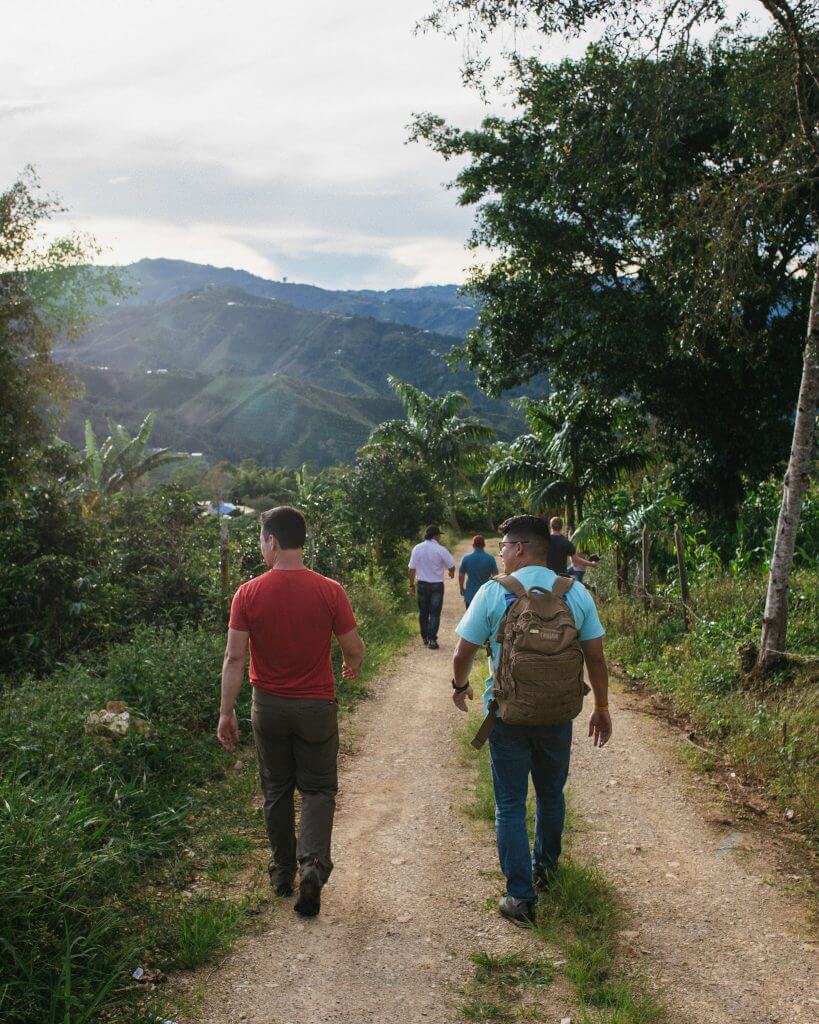
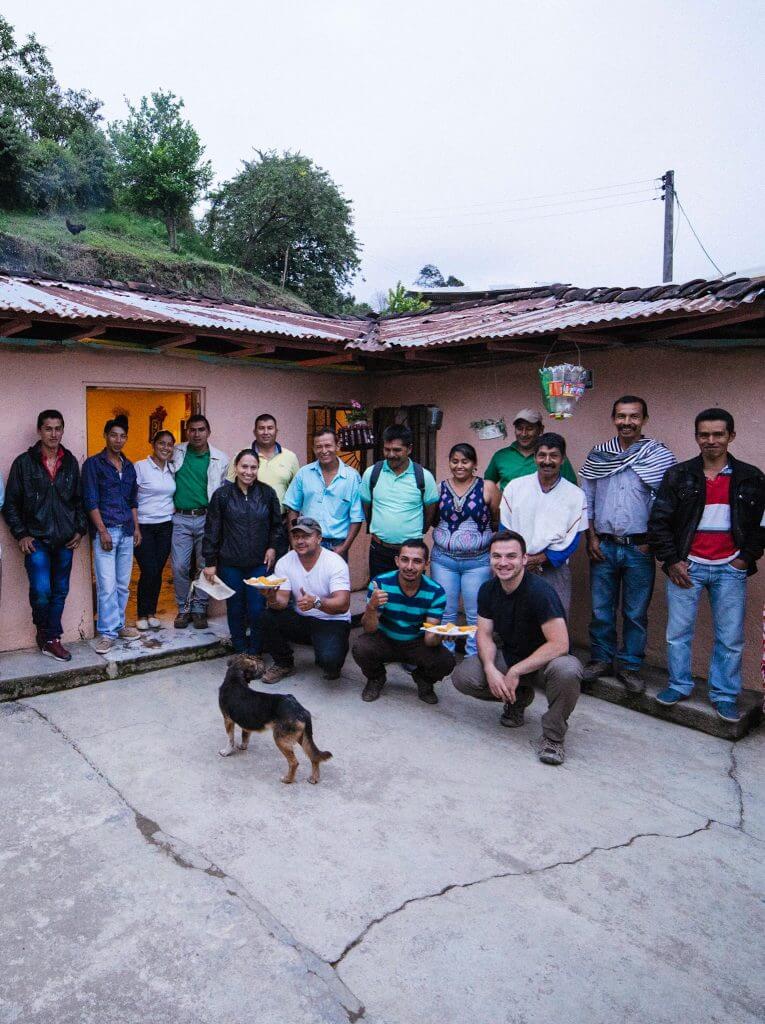
In what ways are most supply chains in coffee currently unsustainable?
That’s a complicated question with no one succinct answer but ultimately it comes down to price and volatility. Farmers in Colombia and in many other parts of the world are subjected to volatile internal markets tacked to the C Market on the NYSE. Prices fluctuate daily so there is some volatility but if you look at historical coffee prices, they are mostly quite low, floating between $1 and $1.50 USD/lb for the last 40 years.
Prices are more or less dictated by the crop yield in Brazil (the world’s largest exporter of coffee) and the prices that the big buyers (Nestle and the like) are willing to pay, and it isn’t very much, especially when you factor in inflation. At the same time, farmers costs have more or less risen in lockstep with inflation.
This isn’t comprehensive though. There are many issues in the coffee industry that make most supply chains unsustainable. Environmental and social concerns are also quite pertinent, though I suspect that many of those wrongs could be righted through simply paying more for coffee.
What steps should be taken in order to achieve sustainable supply chains?
I think that depends who you are asking. If the question is directed at me as an exporter/importer, I would say that my colleagues and I should be willing to roll up our sleeves and, figuratively speaking, get our hands dirty when it comes to building and maintaining relationships with farmers. Being on the ground and in person with farmers does help create a bond that makes me a much better advocate for relieving their plight.
If the same question is directed more at a roasting company, I would say the same with the added footnote that specialty coffee roasters should be on the front lines telling consumers that they shouldn’t be comfortable paying what they have always paid for coffee. Roasters assume they are bound by what they perceive the market will pay and often get complacent. Farmers need them to push harder and help raise the price floor.
Lastly, if the question were directed at a consumer. It’s pretty simple: know who you buy from and why. Don’t look for a deal. Coffee is a luxury product that we have commodified. Don’t forget that while it’s a luxury for you, it’s a farmer’s way to feed his/her family.
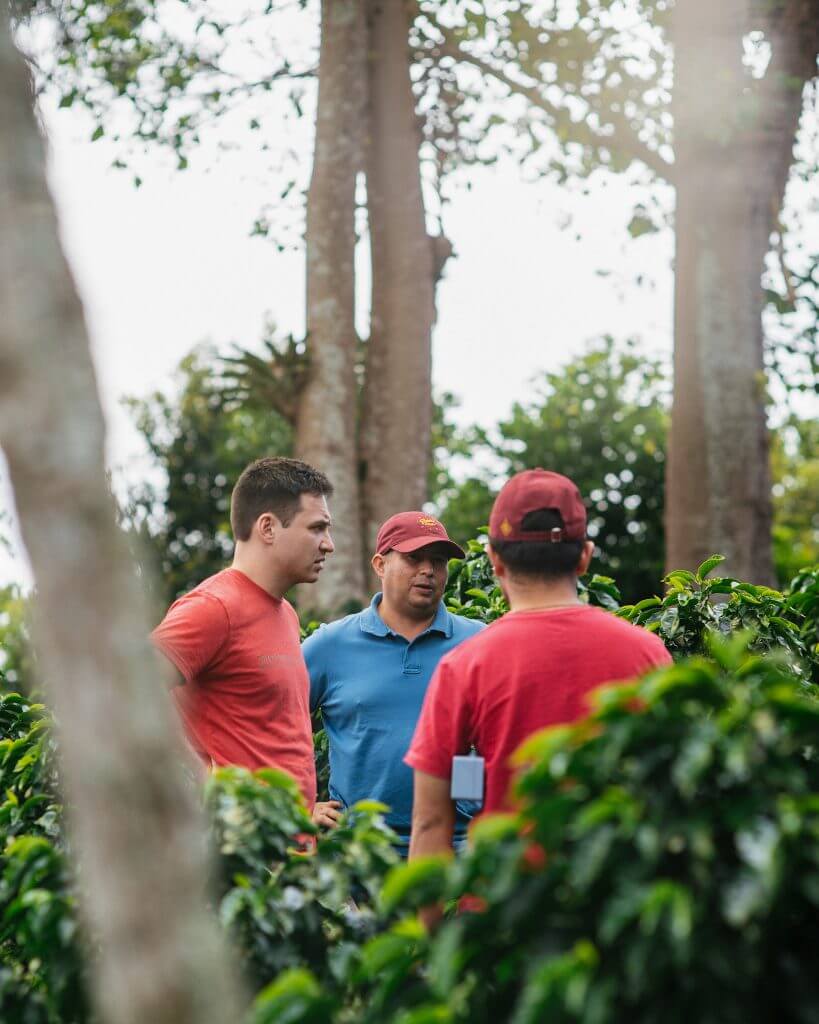
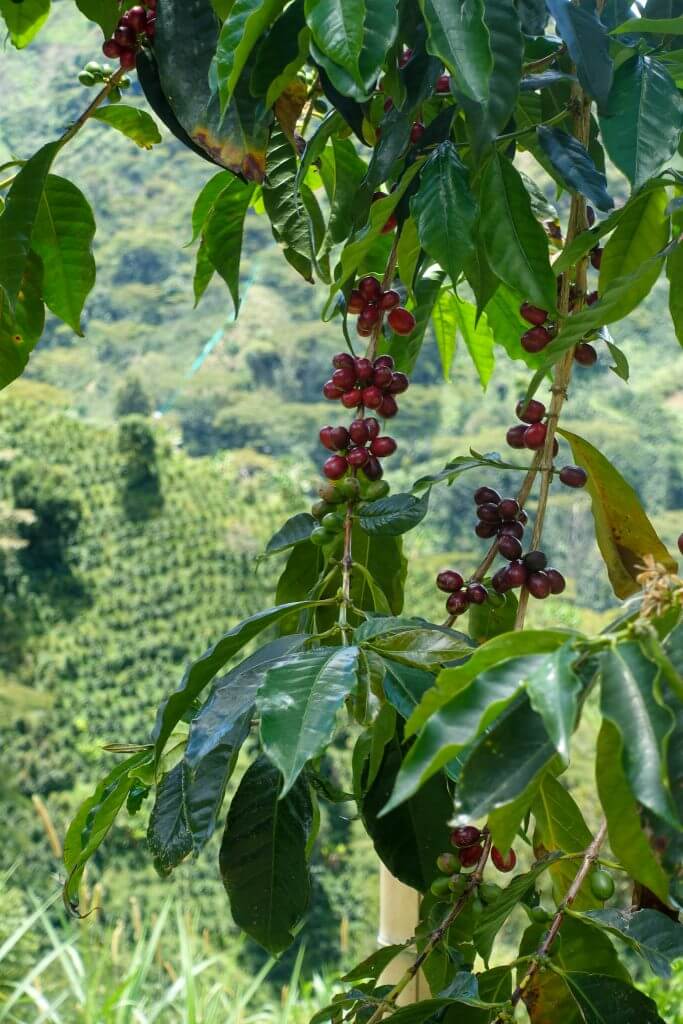
Finally, in what ways do you envisage that small-scale coffee farmers will be impacted by the economic effects of Covid-19?
I think it’s still a little early to say. Early on, the market surged as traders scrambled to buy coffee in anticipation of a slow down at the ports. Since then, in a place like Colombia, where the local market is tied directly to the USD-based C Market, the weakening of the Colombian peso since early March has translated into higher than average prices. These things have all been good for the average farmer.
At the same time, many of our competitors defaulted on contracts worth millions and millions of dollars. In most cases, it’s the farmer who loses money when a buyer defaults.
While coffee consumption is steady, I think the specialty market will slump as people change HOW they consume coffee and small to medium-sized specialty roasters who are already strained by their shops and wholesale accounts being closed, will be slow to react and miss out on business that will then go to the big boys who are buying cheap commodity and low-specialty coffee at unsustainable prices.
Time will tell. If the world begins to open up in the next few months, some downside will be mitigated but it’s hard to tell how long it will be before people can really go back to coffee shops.
